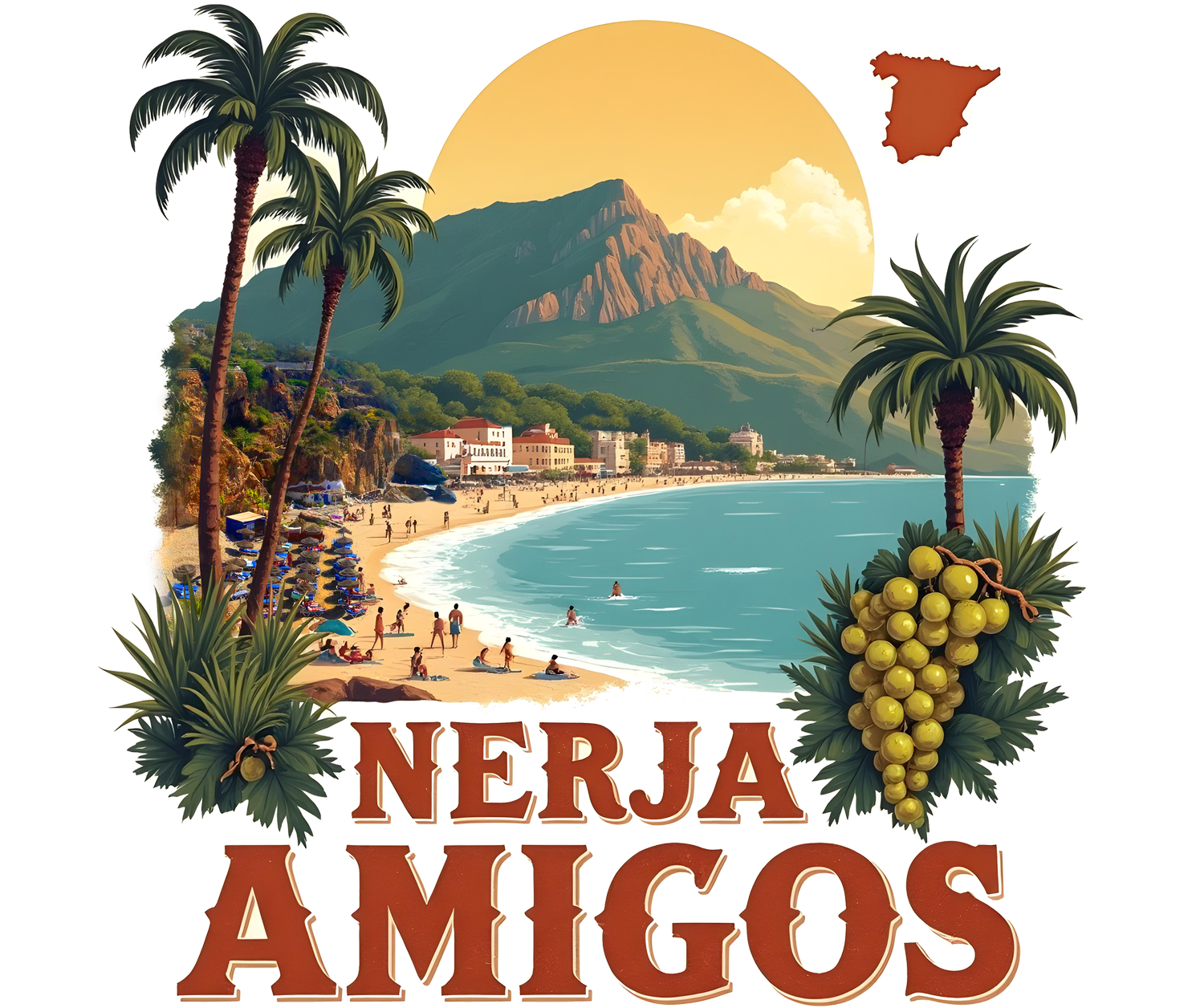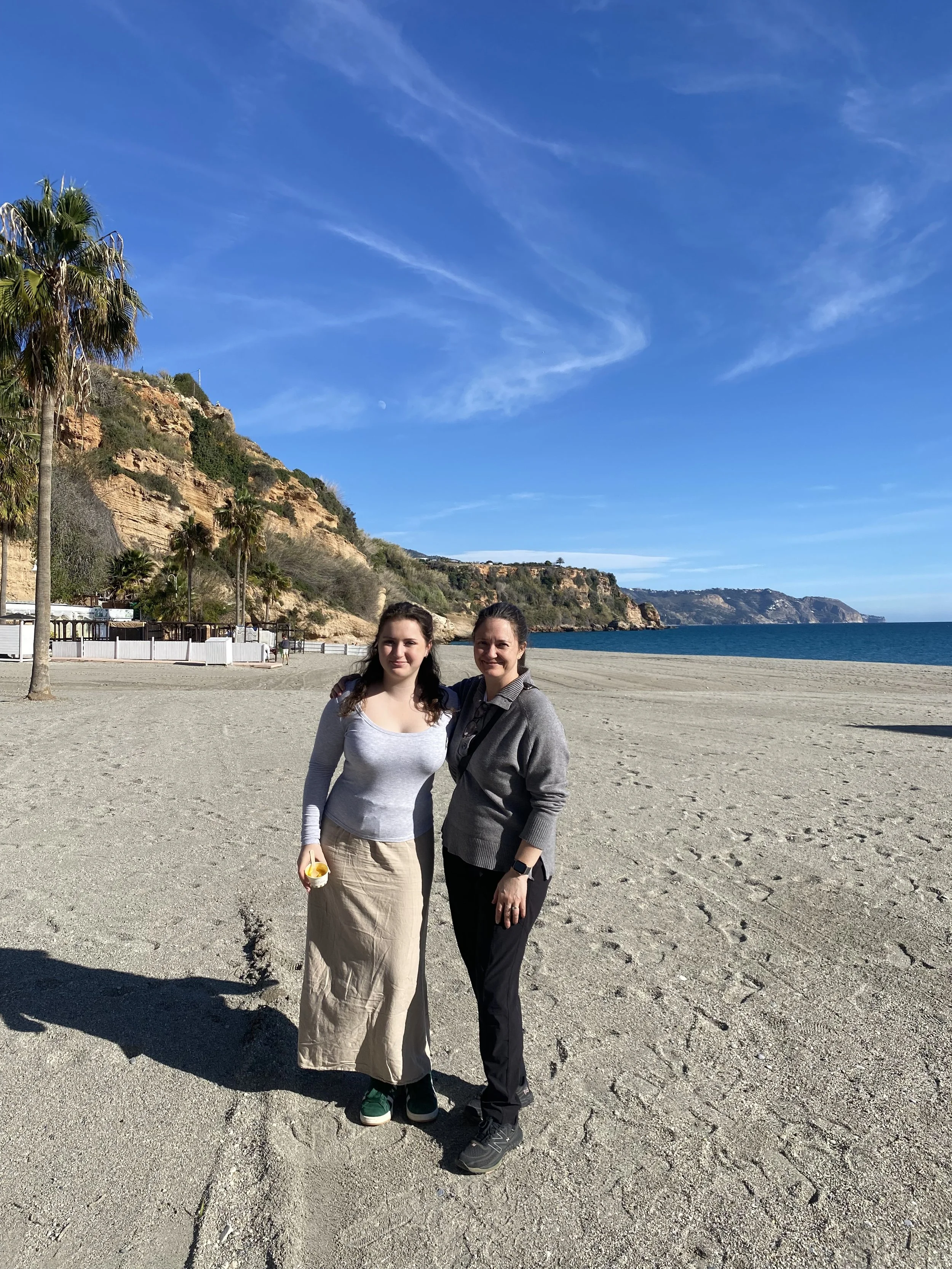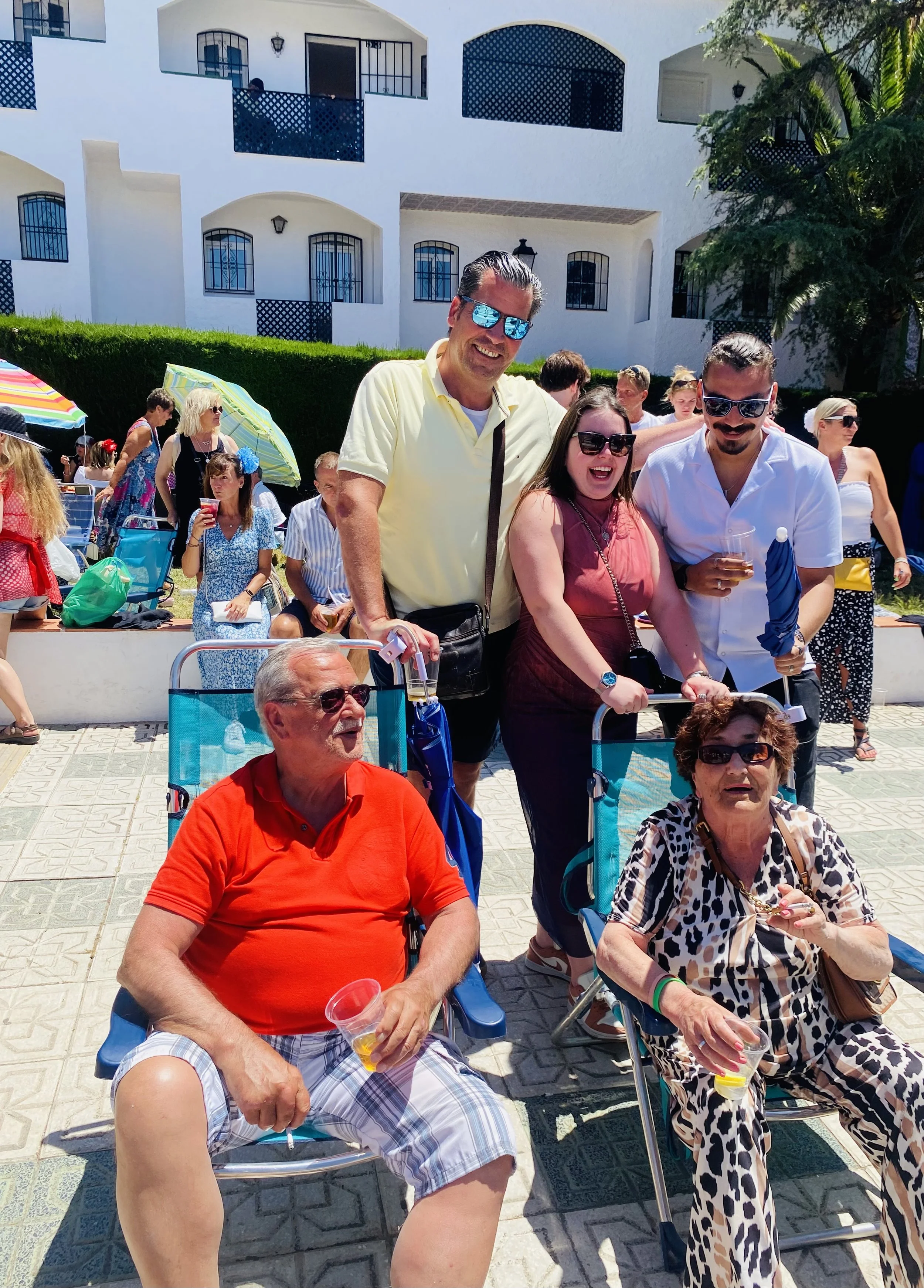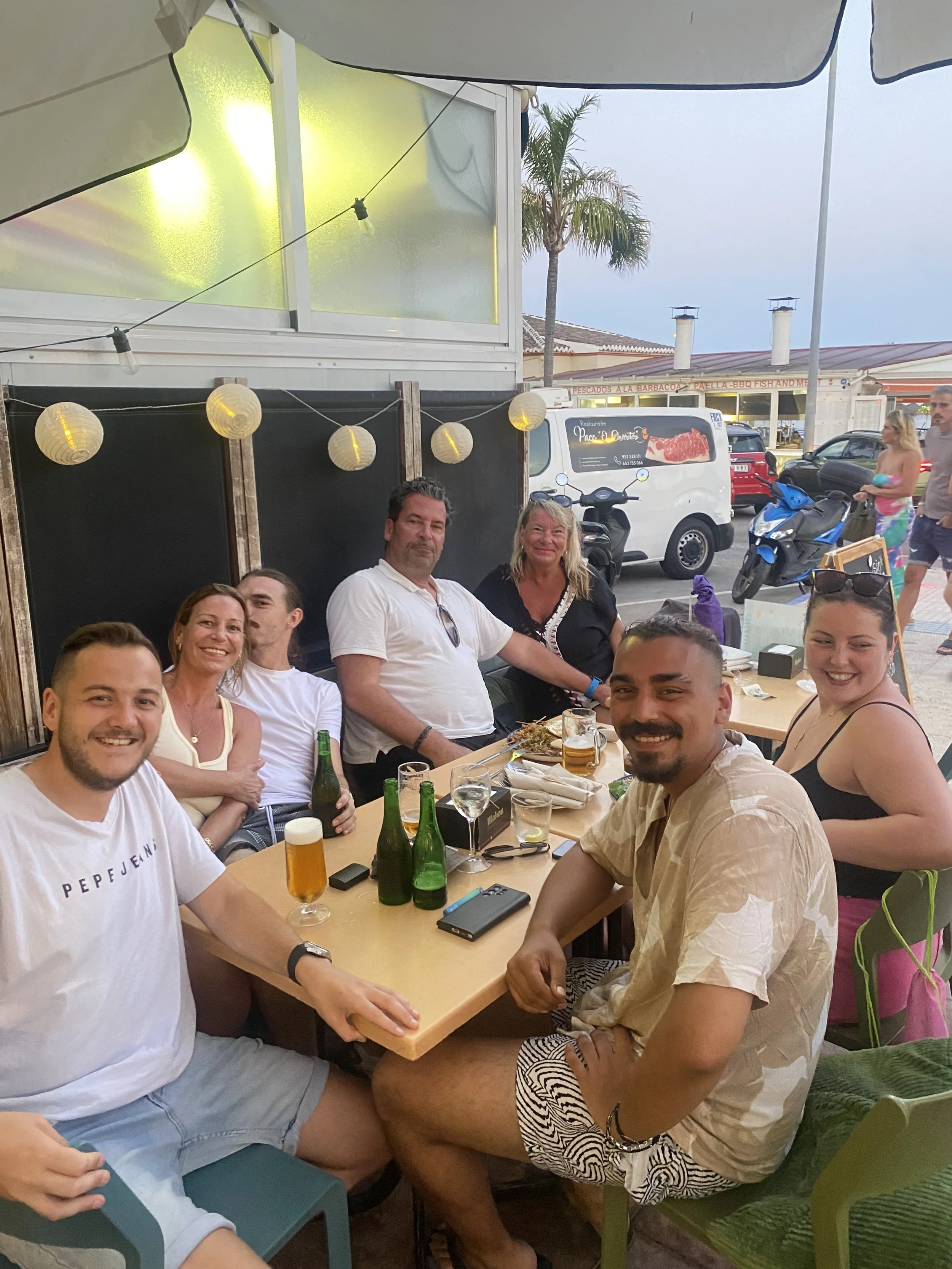TCK´s - Between Worlds: Growing, Living and Belonging
TCK´s - Between Worlds: Growing, Living and Belonging
Life between cultures is not new. Many of us are what’s known as Third Culture Kids (TCKs) — children who grew up moving from one country to another, adapting to a new language and a new traditions, and learning to belong everywhere and nowhere at the same time. And today, right here in Nerja and the Axarquía, we see those same experiences repeating in many different ways.
Some of our children are growing up in Spain, speaking Spanish at school, another language at home, and perhaps yet another language with grandparents. Others are raised between two or more countries, moving back and forth, weaving together identities that cross borders. And it isn’t only children: for decades, Spain has been a favourite destination for those choosing to retire abroad, to enjoy the sun, the lifestyle, and a slower rhythm of life. Each of these groups; children, families, retirees, carries the same questions of belonging, loss, and discovery, even if they experience them differently.
Living this way comes with challenges. Rootlessness is a common one - what does “home” really mean when our stories are stretched across countries? Goodbyes are frequent, identity shifts with context, and what’s left behind can weigh quietly as unseen grief. For retirees, the shift can feel even stronger: moving away from lifelong routines, leaving behind friends and family, and suddenly navigating a new language, healthcare system, and bureaucracy.
Yet there are also extraordinary gifts. Living between cultures teaches adaptability, empathy, and resilience. We grow used to starting over, to finding new ways of belonging, and to seeing the world not in black and white but in a spectrum of perspectives.
Finding Our Place in Spain and in the World
For those of us settling here in Spain or any other country, whether for a season or a lifetime, there are ways to ease the transition and make it more rewarding. Learning the language, even slowly, opens doors and children usually pick it up faster than adults. Whether through private teachers, Ayuntamiento classes, or simply ordering food in local language, chatting with a taxi driver, or greeting neighbours, every small step makes a difference.
Beyond language, reading about the country’s history and culture is just so rewarding. Same with Spain, this country is so much more than sangria, siesta, flamenco and fiestas; its past is rich, complex, and endlessly fascinating. Who is the current King and/ or Queen, or the Prime Minister? What are the political parties in Spain and what do they stand for? What was Nerja before tourism? What does the word “Axarquía” and “Nerja” mean and where does it come from? What role did the sugar cane industry play in the history of the coast between Nerja and Torre del Mar? When was the transition to democracy in Spain and how did it change Spain? Why are so many houses white? Where does flamenco originate from? The more we learn, the more we understand the people around us.
It also helps to embrace Spain’s rhythm. Life here flows differently: shops close for siesta, meals linger, and time is often measured more in moments than in minutes. Instead of holding on to the pace and expectations of “back home,” we can lean into this slower current. Listening is another powerful tool, listening to neighbours, to local friends, to the community - rather than imposing how we think things “should” be.
And let´s not forget to get involved. Nerja is full of opportunities to meet people and find your own rhythm — from yoga classes and walking groups to cultural clubs and special gatherings for both the young and the elderly. At Soul & Spirit Spa, we’ve seen how beautifully ages and backgrounds mix in meditation classes, where younger and older people sit side by side, and on mindful walks where both the fitter and the less fit find their pace. Nerja does not discriminate by age or experience; it invites everyone to belong.
Supporting Our Children
For families raising children here: they too are TCKs. They may feel torn at times, unsure of where they belong. But they also carry incredible gifts — the ability to bridge cultures, to see the world through multiple lenses, and to create something new.
We TCK´s so want to breathe our own identity. That’s why it is called a third culture — not only the one our parents bring, not only the one of the country we live in, but a unique blend of both or many. Sometimes we feel we belong everywhere, yet sometimes we feel we belong nowhere. There is no all good or all bad, it simply is different and once we embrace it, it becomes an incredible gift.
Retiring Between Cultures
For retirees, life here is often the fulfilment of a long dream — but it can also bring unexpected difficulties. Leaving behind family and familiar systems can feel isolating at times, especially when facing health challenges or dealing with bureaucracy in another language. Some miss the nearness of children or grandchildren, others feel the gap between their expectations of retirement and the daily realities of settling into a new country.
Similarly our little tips would be: stay open to learning the language, even just enough for daily life. Build a network that includes both international friends and Spanish neighbours. Explore healthcare options and know which clinics and hospitals are covered by your insurance. Keep ties with family abroad, but also invest in relationships here — those everyday connections make a big difference.
And a gentle reminder: you should not feel you must become a “hotel” for friends and family from back home. As wonderful as it is to share Spain with loved ones, constant visits can become exhausting, especially when you’re still adjusting to your own rhythm here. Boundaries are part of a healthy balance — your retirement in Spain should be your adventure too.
A Final Thought
Living between cultures is not always simple, but it is deeply enriching. Whether we are raising children in Spain, or elsewhere, once a Third Culture Kid, you are one forever and embrace it!!!
Settling here in retirement, or moving back and forth between places, this life teaches us adaptability, empathy, and openness. It shows us that belonging does not have to be tied to one place, one passport, or one tradition. It can be something larger — woven from many threads, lived between worlds, and shared together.
And along the way, we can remember to give space to ourselves and to each other — whether that means letting our children grow into their own identities, joining a local club or class, or gently setting boundaries with visitors from abroad. Because life here is not only about sharing, but also about living fully, in the rhythm we came here to find.
✨ If you’re a Third Culture Kid yourself, or a parent raising children between cultures, connecting with others on Facebook groups such as TCK´s Worldwide or Parents of Third Culture Kids can be very useful — a place to share experiences, find support, and remember you’re not alone on this journey. There are also many books available on Amazon.
👉 On Nerja Amigos, we’ll keep exploring these journeys of growth, identity, and belonging — here in Spain, and beyond.




